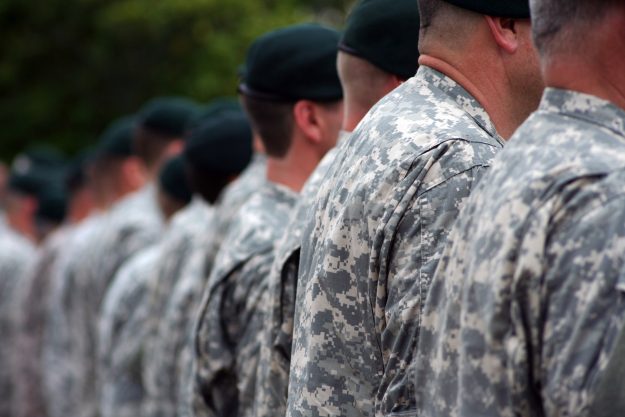National Guard ready to assist states with cyber response, say officials

With more than 2,000 guardsmen trained in cybersecurity, the National Guard is ready to assist states’ cyber needs, two leaders with the National Guard Bureau said at an event on Wednesday.
The National Guard is not faced with the same cybersecurity workforce gaps that many state and local governments are experiencing, Major General Joe Jarrard, director of operations with the National Guard Bureau, told the Billington State and Local Cybersecurity Summit in Washington, D.C.
“The cyber warriors that we have in the National Guard do a tremendous job, not only for our federal authorities when we get mobilized for unsupported cyber com but also at the state level,” Jarrard said.
The National Guard’s cyber team is currently preparing to assist states with the November presidential election. And with the many guardsmen trained in cyber, they’re not yet “out of capacity,” added Brigadier General Teri D. Williams, vice director of operations with the National Guard Bureau.
“The work has to be done now in order to prepare for the elections in November,” Williams said. “[We’re] really encouraging that the National Guardsmen check in with their states and see if there’s anything that’s needed. Obviously, if you don’t need any assistance, we certainly will respect that and understand that.”
Jarrard and Williams said that the National Guard’s success with recruiting and retaining cyber team members is likely not motivated by monetary incentives, but driven by the unique training opportunities and the ability to serve their communities directly.
Members of the National Guard are working professionals, who are required to attend some weekend drills and annual training. Because of this schedule, guardsmen are able to maintain their full-time jobs while also serving their communities.
“We want them to make a lot of money in the cyber field Monday through Friday and then I tell them they can come work for us on the weekend,” Jarrard said. “I think we have a good pool to pull from and those individuals one, they like to do exciting things on the keyboard but two, they like serving their country, serving their community and helping out.”
“It’s just a really unique opportunity to bring all of these different entities from the civilian sector together to share that knowledge,” Williams added.
But the training national guard members receive in cybersecurity is reflected back to their civilian jobs. Jarrard said he once asked an employer if they hated to lose one of their employees for about nine months while they were mobilized.
“And they said, ‘well, it may hurt a little bit, but when they come back in nine months they’ll be the best trained cyber professional we have in the company,’” Jarrard said. “So they didn’t mind giving them up for nine months.”
Williams, for example, works full time as a senior cybersecurity adviser with the Cybersecurity and Infrastructure Security Agency.
“I think for the first time in my career, my civilian job and my national guard job align, which is really nice,” Williams said.
Although CISA is currently building its capacity to better serve states’ cyber needs, Williams said, it relies on the National Guard to help handle some of that capacity.
Williams said the National Guard also prides itself on being proactive when it comes to states’ needs. The bureau provides national and regional cyber exercises aimed at supporting states while also educating them on the capabilities the National Guard can provide when it comes to cyber response. Additionally, some National Guardsmen sit on state meetings for incident response plans to help maintain that relationship as well, Williams said.
“We can work with you on those incident response plans and tell you some of the lessons that we’ve learned from our reactive experiences,” Williams said.






